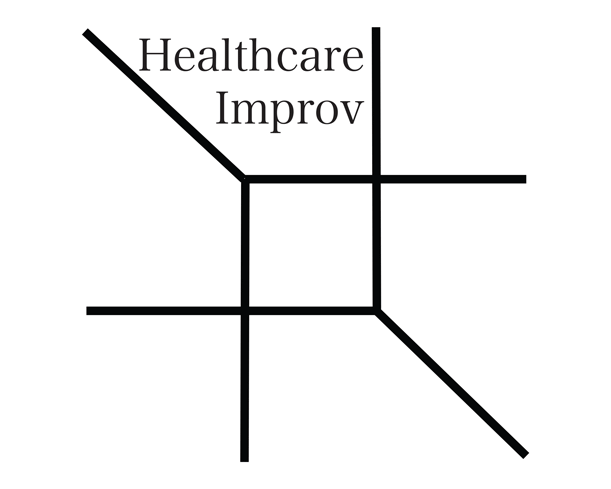Michael Smith is a doctor, teacher and lover
Well, hello dear friends and curious lurkers alike. I tried to start writing about improv and healthcare with regularity when I started the social media accounts at the end of 2020. That has fallen to the wayside. I hope to lift writing up out of the wayside and onto this page. My hope is that I briefly run down how events/workshops went, discuss upcoming opportunities, and most importantly how the ideas pop up in my day-to-day life working at an academic hospital with all the healthcare professions as well as the people learning to be those professions. For this inaugural post, I will bring you, the reader, up to speed on activities of this academic year as quickly as possible and the thoughts rolling around my head as a result.
The year started with an Empathy workshop with the PA students at UNMC. Different groups on campus have different general attributes in how they approach a workshop using improv to enhance communication skills. The PA have almost all the positive ones and none of the negative ones. This was also the first workshop I had done with the group together in person and it was during the brief period this summer where we didn’t have to wear masks. It was great. Then in August, on the first-year medical students’ first day of class, we did the Empathy workshop as well. I think that that is hilarious because I am sure there were several people who, quite appropriately by the way, were confused about which professional school they had signed up for. It went great and a month later, we did the Body Language workshop for them. The second workshop is always my favorite with a group because they have a comfort level and they have even more fun. The group had to write short essays on their experience of each workshop. Reading their answers to the questions from the Empathy workshop were some of the most meaningful moments of my career as an educator. Several of the students discussed at length using the idea of “Yes, and…” to connect with loved ones they had been having strained conversations with. They noted that as a result of focusing on listening to their conversation partner, they found that often times, that behavior was reciprocated. They noted conversations that were once causing fractures in the relationships with certain loved ones were able to be converted to productive conversations. They didn’t say that they were able to convince people in their lives or that they were convinced of what their conversation partner thought. That wasn’t the goal the whole time. They noted that each person felt understood, and the conversation was productive. I learn something with each workshop, but this was the clearest call to action I have ever experienced. I need to be better about practicing Yes, and… with the people in my life.
Then I went on vacation. Came back and it was time for the faculty development workshops that I do each year and how I first started implementing improv to help healthcare professionals improve communication and leadership skills. The first unit was Empathy and Adaptability. A news station came to the first Empathy workshop and did a very nice news story about what we do. The workshop went really great, and the participants were from a wide variety of campus. Then the Adaptability workshop went well as….well.
While those were going on, I started teaching the Level 1 Introduction to Improv class that I first took way back in 2014. That has been even more fun than I anticipated and has led to many insights as well. This past Monday we talked about coming out as big characters with a back story. We practiced each person doing this so that the class trusted themselves to come out with a big character and stay with that character, trusting that along with their scene partner, there will be a connection found. This again connected to ways to improve your empathy and adaptability that we discussed in all the workshops this Fall. Creating backstories for people can help you to increase your empathy for them without saying that they are correct. I always give the example of someone cutting you off in traffic, rather than thinking that they should go rot in hell, think they must have somewhere important to go and wish them well. That is saying Yes to their reality without diminishing your reality of not being happy about being cut off. Adaptability is about saying Yes to the situation and adding your contribution based on your principles. I start seeing patients with an academic team of medical students, interns, and a resident tomorrow. I am anticipating having to call upon the lessons that were practiced in the Empathy and Adaptability workshops quite regularly. I will be seeing patients with COVID and as long as things haven’t changed dramatically since I was last on service, I suspect there will be a wide variety of deeply held beliefs. It will be my job to take care of the health of the people who have those beliefs. I don’t have to agree with any of them but I do have to come to a mutual understanding and establish a connection. Similarly, I can get mad about how busy the situation in the hospital is or who should be doing what, or I can acknowledge the reality of the situation and proceed on with the principles that are important to me. I think that the ideas of Empathy and of Adaptability are the two most important ideas for me in the current state of the world of healthcare. I am grateful for improv to help me practice the skills necessary to live with more empathy and adaptability.
That’s all for today, I will keep the posts shorter in the future! I guess I blog now

